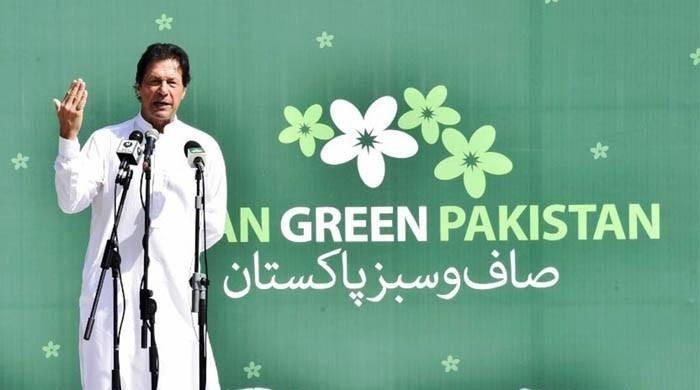In an unprecedented initiative, Pakistan launches Clean Green Index competition across major cities
Shares

ISLAMABAD - Advisor to the Prime Minister on Climate Change, Malik Amin Aslam, here on Sunday said that the flagship initiative of the Clean Green Pakistan Index (CGPI), which is set to be launched on October 30, would aim to kick off competition among cities of the country on various indicators including public access to clean drinking water, safe sanitation, effective solid waste management and tree plantation.
He told the media that Prime Minister Imran Khan would launch the Clean Green Pakistan Index here on October 30 at a grand launching ceremony.
The top key representatives of provincial governments including Gilgit-Baltistan and Azad Jammu and Kashmir, federal and provincial ministers, senior federal and provincial government officials, ambassadors of various countries, university teachers and students and senior representatives of local and international non-governmental organizations will attend the ceremony.
At the ceremony, baseline data of 19 competing cities will be announced and announcement for start of the first phase of six-month competition among 19 cities of Punjab and Khyber-Pakhtunkhwa provinces would made by the Prime Minister, Malik Amin Aslam said.
He added that after six months, these competing cities would be ranked again and those with prominent progress with be rewarded with special federal and provincial government funds.
After six months, more cities will be added in competition as second phase of the programme, said a press release. The Advisor said that the CGPI has been rolled out by the ministry under the Prime Minister Imran Khan’s political manifesto of clean and green Pakistan and environmental conservation and sustainability.
He said that present government is focusing on transforming overall outlooks of the countries cities, which will play key economic engines of the country in coming days. “Now cities in many countries across the world are playing vital roles in overall socio-economic development of the countries.
It is because, cities are now providing economies of scale and they are also providing efficient infrastructure and services through density and concentration in sustainable transportation, communications, power, human interactions, water and sanitation services and effective waste management and enhanced urban forestry activities.
Explaining the core objective of the CGPI, Secretary Climate Change Hassan Nasir Jami said, the CGPI initiative is being kicked off to begin a competition process among 19 cities of Punjab and Khyber-Pakhtunkhwa cities in the first phase and the competition process would be expanded to other provinces of the country in the second phase for making cities clean and green and environmentally sustainable through large-scale tree plantation and sustained supply of basic life amenities such as clean drinking water, safe sanitation, efficient municipal and solid waste management service deliveries,” he elaborated.
Spelling out various aspects of the CGPI, the Secretary told the media, “The CGPI fundamentally comprises five pillars of Clean Green Pakistan Movement launched by the Prime Minister last year that include water, sanitation, hygiene, solid waste management and plantation.”
Judging the performance of the cities for the CGPI, each of the five pillars would be assigned equal weightage of 20 marks during assessment of the cities on these five pillars of the CGPI, he added.
“The CGPI, hammered out by the climate change ministry, will primarily measure clean and green characters of the cities on different 27 indicators under these five pillars. Besides, this index will be used as measuring-rod as performance indicator for making annual budgetary allocations to the provinces from the national kitty,” he further told.
Talking about data gathering for the 27 indicators of the Clean and Green Pakistan Index, the Acting Inspector General of Forests at the Climate Change Ministry, Muhammad Suleman Khan Warraich, explained that the data for the index would be gathered at households and neighbourhood levels through surveys to be conducted by local government departments.
He also told the media that the data regarding the service delivery in water, sanitation, hygiene, solid waste management and plantation categories would be obtained after every three months from the respective city councils and administration working in each district of the provincial cities.
Once the data has been evaluated by the climate change ministry, the results for the performance of the cities on these five pillars (water, sanitation, hygiene, solid waste management and plantation) would be announced twice a year, the climate change secretary said while explained the data collection process for the CGPI, Suleman Warraich added.
He hoped that the Index would be used as a yardstick for improving role of cities in transforming overall living standards of its inhabitants through improved environmental services with better and sustained provision of safe drinking water, sanitation, hygiene, sustainable waste management facilities and enhanced urban forest cover.
